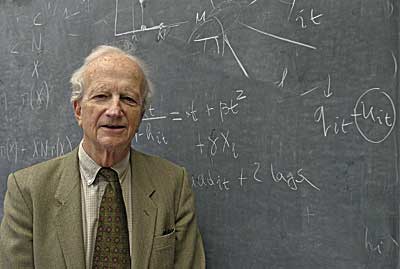The theory of Human Capital is a scientific-academic interpretation of the causes that lead to the development of a nation in the post-industrial world. It is a concept that has been much in vogue for about forty years among those responsible for planning growth, since it emphasizes the enormous importance of education at all levels with its aim of moulding a nucleus of high calibre technical and scientific staff. Such a nucleus can offer a solid platform for the launch of a steady rise in an economy.
As we are all well aware, the concept of "capital" was developed by classic economists, and specifically by Karl Marx, to describe the assets and resources (both the symbolic and the intangible) that are capable of self-reproduction, and thereby create a process of increased accumulation, which constitutes the essence of capitalism.
In the light of this, the objective of any educational intervention is the creation of such "human capital" as expounded in 1964 by the economist Gary S. Becker with what by now has already become the classic definition: "the sum of the productive capacity that an individual acquires through the accumulation of general and specific knowledge, of savoir-faire". Human Capital, in the light of this definition, comprises the integration of an immaterial resource with the potential to accumulate and expand, thus like any other capital resource is self-reproducing. Consequently this creates wealth from idle materials or resources.
 This being said, the value of human capital stems from the difference between the extent of the initial investment in obtaining an education plus all related expenses: the cost of equipment; student expenses; effectiveness of time spent; efficiency of the teaching processes, etc., and the corresponding value of the results obtained in terms of the quality of the teaching, effectiveness, processes of valuation. It is on an informal level, albeit still in an unconscious way, through the costs and benefits of an education, that a society measures human capital. In this way we can establish the benefits of a cultural added value, although our definition will depend on what subjective value material society and the historical period apply in comparing the investment of efforts and resources in the integration of human capital as defined above. This being said, the value of human capital stems from the difference between the extent of the initial investment in obtaining an education plus all related expenses: the cost of equipment; student expenses; effectiveness of time spent; efficiency of the teaching processes, etc., and the corresponding value of the results obtained in terms of the quality of the teaching, effectiveness, processes of valuation. It is on an informal level, albeit still in an unconscious way, through the costs and benefits of an education, that a society measures human capital. In this way we can establish the benefits of a cultural added value, although our definition will depend on what subjective value material society and the historical period apply in comparing the investment of efforts and resources in the integration of human capital as defined above.
Modern nations attach a great importance to such a process, however it is not so in countries still undergoing dynamic change, where the investment in fixed, tangible capital (like the purchase of foreign technology, investment in manufacturing systems, production processes, etc.) has a greater importance.
Gary Becker has studied what today we define as the "knowledge society", concluding that the primary asset in such a society is human capital that the society has been in a position to develop. Productivity in such a society is the potential of the specialisation of their own knowledge, as well as the development of third generation technology, that implies the prevalence of software, i.e. the knowledge and the experience, over hardware, that is to say the material base for the technology. Human capital is of primary importance in maintaining and planning the productivity of a modern economy, since this capacity is based on: creation, dissemination and the utilisation of knowledge, which constitute resources for excellence of a technologically advanced society. This means, therefore, a fundamental change in our vision: from economy to human economy; from social capital to the development and expansion of human capital, and it is this, in the next decade, that will give enterprises their only sustainable competitive advantage over the course of time. Although a system of certification of competences is difficult to develop and make into something tangible, it must nevertheless be something we strive for, and, above all, it must be a joint effort by government bodies, the private sector and the education sector, so that the alliance between all three leads to a rise in productivity, profits and employment, and a system of capital based on the knowledge required at the time.
|
